- Home
- Pearl S. Buck
Death in the Castle Page 17
Death in the Castle Read online
Page 17
So speaking, he pushed the vicar aside and left the church, the sword held high in his right hand.
“… You’ll not get up, my lady,” Kate declared, “even though the tourists are coming this afternoon.”
“But I am up,” Lady Mary said crossly. “What’s more, I’m half dressed. Go away, Kate.”
“I will not,” Kate retorted.
After serving luncheon and finishing her work in the pantry, Kate had come straight to Lady Mary’s room expecting to find her still asleep, or perhaps drowsily waking. She had found Lady Mary sitting on the edge of her bed, trying to put on her clothes. Remonstrances were of no avail, her ladyship was adamant.
“Kate, I tell you, I must see that American. I have something to talk about—business—it’s very important. Where is he?”
“The doctor gave me my orders,” Kate said stubbornly. “You’re to stay in bed, my lady. Tomorrow, if you feel—”
“Tomorrow will be too late,” Lady Mary said, gently stubborn. “And how dare you talk about orders, Kate? You forget yourself, indeed you do. I’m surprised at you. You’re getting above yourself, you really are. I’ve noticed it before. We’ve spoiled you, and now, just because we’re in difficulties you’re behaving very badly. You’re taking advantage.”
Kate stared at her astonished and burst into tears. Never before had Lady Mary spoken like this. “Oh, my lady, you know that I can’t bear seeing you and Sir Richard in trouble.”
“I must speak with that American. I want to tell him to go at once. It’s he who has caused all this trouble.”
“Oh, I agree that the American should leave us,” Kate wailed. “I do want them to go, all of them to go. If we could only get back to the sweet old days, dear, with just the three of us here, and Wells, so peaceful it was.” She continued to sob.
“Do stop crying, Kate,” Lady Mary said impatiently. “It upsets me. You know we can’t do without you, whatever you are. Now help me with my things, for my head does feel a bit heavy. Mind that button, it’s almost off. Now, that’s better—I’m properly dressed. Take me to the American, wherever he may be.” She leaned on Kate’s arm and talked as they walked together.
They found him on the terrace in consultation with one of his young men. Lady Mary straightened her frail body. She lifted her head and her eyes shone blue. “Mr. Blayne!”
“Yes, Lady Mary.” He smiled good-naturedly. “If you’ve come to tell me to go I want to assure you that we will be off at precisely five minutes to three.”
Lady Mary looked at the young men inside the castle who were making measurements and drawing sketches on large pieces of paper. “Those Americans seem to be everywhere,” she said, “don’t you think so, Kate?”
“I haven’t thought about it, my lady,” Kate said.
“You should think, you know, Kate,” she went on with gentle severity. “Everyone should think these days, if at all possible, about everything. Which reminds me, Mr. Blayne, would you mind leaving immediately instead of when the tourists come?”
He stood there bemused, wondering if he was being made game of in some obscure English fashion.
“Leave, Lady Mary?”
“Please do so,” Lady Mary said in the same pleasant voice. “With all cohorts! Kate, tell the men that Mr. Blayne is leaving, at my request.”
“They won’t listen to me, my lady. I tried that before,” Kate said.
There had been enough of this game, whatever it was, and John broke in impetuously. “Of course we will leave, Lady Mary, but I must remind you that Sir Richard gave us permission to remain—in fact, he asked us to proceed with the castle as planned, and—”
Lady Mary drew herself up so suddenly that she tottered. Kate stepped forward to offer her arm, and Lady Mary steadied herself. Indignation enlivened her whole being.
“How dare you,” she cried. “Do you question who I am? This is my home, Mr. Blayne—I have the right to—to—”
“We go at once.”
“Kate,” Lady Mary said imperiously, “go with him, else he’ll lose his way.” She lowered her voice. “And he’s not to go near Sir Richard, mind you. If you see Wells, send him here at once.”
“Yes, my lady,” Kate said, and followed John Blayne. Instead of going immediately to inform the rest of his young men, he had gone into the garden. She caught up with him near one of the elephant yews. For a moment they looked at each other without speaking.
“Kate, what does this mean?” He spoke impatiently. “And how am I to know what to do? Sir Richard tells me to stay, Lady Mary tells me to go, and both of them act as if they were living in the Middle Ages when people could be ordered around.”
“In a way they are living back in the past, Mr. Blayne, that’s what’s the trouble. It’s the castle—they’ve got to get away from it.”
“There may be a way, though it may not be the eternal way,” he reminded her. He reached out and took her hand, holding it in his palm like a flower. “Do you know you have pretty little hands?”
“Please—” She blushed and tried to pull her hand away, but he covered it with his other hand.
“Why do you distrust Americans?” he inquired.
“I don’t,” she said. “Not at all,” she added. “Why should I? You are the only one I know.”
Oh, what a pretty girl she is, he thought. Assured and graceful and proud-looking, her face was a picture with its straight features, fine skin and violet eyes.
“Then why don’t you trust me?”
“Please, Mr. Blayne—”
He saw the look in her eyes and let her hand slip away. “Kate, what is it?”
She bit her lip and tears brimmed her eyes. “It’s just that I …” She faltered, paused.
“Just that you what?” He tipped her head up to look at him, his forefinger under her chin, but she twisted away from him.
“There, it’s nothing—it’s more than just the castle. Sir Richard and Lady Mary grieve so only about the castle. I have to think of them, you know, take care of them—”
“It’s the treasure in the castle, isn’t it?” he asked.
She took him seriously. “Yes, yes, I expect it is.”
“Have you any idea what that treasure is?”
For a moment she looked almost frightened as his eyes kept their steady gaze on her. “N-no, no I haven’t, Mr.—”
“John,” he interrupted.
“John,” she repeated, like a child learning a new word in school.
“I’m just beginning to understand.”
“I wish you would go away, really I do,” she said in a low voice. “I wish you would leave us to ourselves.”
“You mustn’t blame me, you know, Kate. It’s not my fault, and my going away won’t solve anything. If you’d only explain—”
She interrupted him in sudden impatience. “I can’t explain, I tell you. I’m only the maid.”
“You’re not! You’re everything here in the castle and I can’t leave you,” he said firmly. “Here I stay, until—”
She could be firm, too. “You’re not. You’re going, as Lady Mary asked you to.”
He yielded suddenly, seeing that neither was to be gainsaid. “We go at once,” he said.
… Presently Wells stood before Lady Mary. “You sent for me, my lady?”
“I did. I want to know where Sir Richard is.”
His eyelids flickered. “I do not know, my lady. He went off on his horse before luncheon. Will that be all?”
“You should know. It’s your duty, Wells, always to know where Sir Richard is.”
“I’ve a good deal to do, my lady.”
“Don’t speak to me like that!”
“No, my lady. I’m sorry, my lady.”
She paused, to signify he was not forgiven, then went on, “Go and find him.”
“Yes, my lady.”
He had walked as far as the entrance to the castle when suddenly she called him back.
“Wells, come here!”
&nbs
p; He came back slowly, his gnarled hands hanging at his sides, surprise on his long, old face.
“Wells,” she said in a low hurried voice, “I understand—what I didn’t before.”
He looked blank.
“Wells!” she said sharply.
“Yes, my lady?”
“I know everything!”
“Everything, my lady?”
“Everything. … Wells, I saw him.”
The look on the long face changed. The cheeks quivered, he blinked his eyes rapidly two or three times, he wet his lips before he spoke.
“Then I can only say I’m glad, my lady. It’s been a strain—fearful, I might say.”
“I’m sure it has been. You did what you thought was right. I don’t blame you.”
She paused. Her face quivered piteously and he looked away, in tender respect. She went on, hurrying her words, her voice low.
“Wells, the boy—Colin—wasn’t yours, was he?”
“No, my lady—”
“Then, why did you—”
“For his mother, my lady. Elsie, that was. I was daft about her. In love, that is. … She wouldn’t look at me, though she knew Sir Richard couldn’t—his father would never have allowed a farmer’s daughter to—”
“Stop for a moment, Wells.”
She looked so desperately pale that he was frightened and yet he dared not call anyone. To think that all these years she had not known! He’d wondered, but Elsie had said no, she didn’t know—not Lady Mary.
“Don’t take it hard now, my lady,” he whispered. “It was all done with long ago.”
“Did he—love her, Wells?”
“Sir Richard? Oh no, my lady—it was just a fancy, on a summer’s day. Even she knew that. And she—she was afraid of him, in a way, so far above her station.”
“But she gave him a son.”
Wells hesitated. “Well, in a manner of speaking. The child was a boy—yes, my lady.”
“So it was my fault that—”
She was wiping her eyes on a wisp of lace handkerchief which she pulled from her belt.
“What was your fault, my lady?”
She shook her head and could not answer for a moment.
“You must help me, Wells,” she said at last.
“Anything, my lady.”
“We must get rid of the Americans, or have they gone already?”
“I couldn’t say, my lady. I’ve been in the kitchen. I’m putting together a lamb stew for dinner—”
“Come with me now. We must find Sir Richard.”
She put out her hand to lean on his arm as they went into the castle.
… The four young men were folding their papers into their briefcases, laughing, ironical.
“No explanations?”
“Command from the brass, that’s all! Be out of here in fifteen minutes—said he’d meet us at the inn.”
“Waste of time from the beginning—”
“Not if we’re paid for it—”
“Look at the old lady coming in—and the old ghost—”
They stared at Lady Mary as she stood watching them.
“Make haste, if you please,” she said coldly.
“Nothing suits us better, lady.”
“Impudence,” she muttered, but they heard her.
“Damn the Americans, eh, lady? Send us to hell, if it’s America, that is—”
“Move on, Wells.”
From room to room they went, but nowhere was there a glimpse of Sir Richard. Ahead of them Kate and John were walking side by side.
At the door John stopped. Her face, so sweetly young, so childlike when she was hurt, was upturned to him now, lips quivering, eyes misted—those violet eyes, he thought as he looked deep into them.
“Where will you go?” she asked.
“To the inn in the village.”
“Shall we never meet again?”
“Is there any reason for us to meet, Kate?” He stood looking down at the upturned face. He had not fully realized until now that she was only a little thing. She was always so brisk, so vivid, so busy, that she had seemed taller than she was. Now, the briskness gone, the vivacity subdued, she looked small and helpless. He wanted to take her hand and did not.
“I suppose not,” she said. “I can’t think of any reason except—” She bit her lip.
“Except what, Kate?”
“In a queer sort of way,” she said haltingly, “I shall—miss you. Silly, because of course you won’t be missing me.”
“In a queer sort of way,” he said, gazing at her steadily, “I shall miss you.”
He took her hand now in both of his. “Good-bye, little Kate,” he said.
“Good-bye,” she said, her voice a whisper.
He ran down the steps to his long green car. He got in and turned to wave before he drove off. Kate smiled as his lips shaped the words, “I’m not leaving for good.”
Then Lady Mary, accompanied by Wells, joined Kate on the steps. She held up her frail hand to wave. John Blayne gazed at the three of them with strange premonition, with strange regret. What would become of them? What would become of Kate? The sun was high above the western tower and the golden light flamed over the dark stone walls. Their figures all looked small and helpless in the shadow of the castle.
The soft purr of the engine beat like a heart alive and Kate, hearing it and knowing who was behind that wheel, was filled with a forlorn sadness. Never had she felt so alone. Instinctively her hands flew to her cheeks in a gesture of fright. How could she stay here now? How could she bear never to see him again? Watching her, John Blayne was impelled by the same instinct to cut off the engine, open the door of the car and dash back to her.
Yet when he reached them it was to Lady Mary he spoke. “Lady Mary, please, I beg you, can I be of help to Sir Richard? Is something seriously the matter?”
She was surprised, agitated. “No, no, please go, please go now.” But she was touched by his move and struggling hard for words said, “And tell—your men—I am sorry that I spoke sharply to them. I—I am not quite myself today. Now, go.”
He bowed, defeated yet grateful, and walked slowly back to the car. Kate followed him as if she did not know why. They looked at each other once more, she silent and her eyes beseeching.
“No,” he replied to her pleading, questioning eyes. “No, I’m not going away until I know what is wrong. Call me if—if—” he stopped.
She nodded, unsmiling. He stepped into the car and drove away. Kate, standing there looking after him, suddenly found herself sobbing, not caring who knew, or why. Behind her on the terrace Lady Mary and Wells stood, the one shocked, the other vexed. Kate crying! Why should Kate cry now when the Americans were gone at last?
“Kate,” Lady Mary commanded. “Kate, come here!”
But before Kate could comply, the screech of a bus rounding the corner into the park was heard. The first of three charabancs filled with tourists came sweeping up to the steps. The doors opened and people poured out.
Wells took up his position by the door to the castle. Kate sped to Lady Mary’s side, slipping her hand through her arm. Lady Mary stood as if at attention, but the trippers had no eyes for her or if they did they said nothing. They had come to see a relic of ancient England and each one was determined to get his shilling’s worth.
“Quaint little castle,” someone said.
“It’s one of England’s oldest,” another replied.
They went into the great hall and walked slowly about, looking at the tapestries on the walls, touching the paneling with admiring fingers.
“Silly little towers, I say,” someone remarked.
“Norman,” another answered, “or so the book says.”
“How could people ever live in such moldy old places?” a woman asked.
“For reasons of their own,” her husband answered.
“It’s not like a house, is it, Mummie? It’s more like a museum.”
“That’s about all castles are g
ood for these days, and to teach children their history.”
“It would give me the creeps to live here, fair give me the creeps.”
“That’s what I say, let’s get out into the sunshine.”
So the conversations went as the tide of curious, wide-eyed people flowed from room to room.
… Lady Mary and Kate were sitting on a bench under an ancient beech until they could enter the castle as their own again. Through the quiet of the drowsy afternoon came the sound of galloping hooves, then Sir Richard could be seen riding in from the direction of the village, and be was riding as if leading an army into battle. His right hand was held high. In it was a sword whose blade flashed in the sunlight. Kate, with Lady Mary clinging to her arm, hastened from their shelter. They reached the steps that led up to the west door as Sir Richard reined in his stallion before them. His face was flushed, his eyes wild, and he whirled the sword above their heads.
“Where is he?” he shouted. “Where is the foreigner? Where are his men?”
Wells hurried down the steps to lay his hands on the bridle of the horse.
They stared at Sir Richard with a strange mixture of terror and admiration. He made a picture there, on the panting horse, a portrait from another age, his splendid carriage, his powerful frame, the handsome head, the strong right arm swinging the sword.
“Oh, Wells,” Lady Mary whispered, “isn’t he glorious? My heart breaks—what shall I do? What shall I do?” Then she cried out, “Richard, where have you been?”
“Leave him to me, my lady,” Wells whispered.
Gently he stroked the horse’s nose. “He’s all in a lather, Your Majesty,” he said quietly. “You’ve come a long way, I daresay. But you can rest now—they’ve gone—all of them.”
“Then I must go after them,” Sir Richard cried. “I’ll pursue them to the very end.”
“It’s no use, Richard,” Lady Mary said. “Now, please get down from your horse and come in. We’ll have tea. I’m sure you’re famished.”
He stared at her as though he did not know her. “Silence, woman! Into the castle! This is war—Lord Dunsten, your horse! Follow me—we’ll find them—”

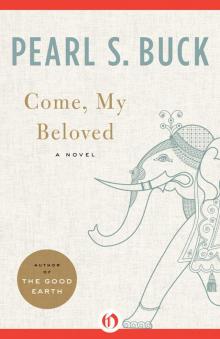 Come, My Beloved
Come, My Beloved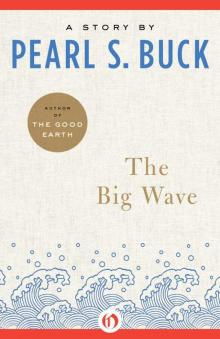 The Big Wave
The Big Wave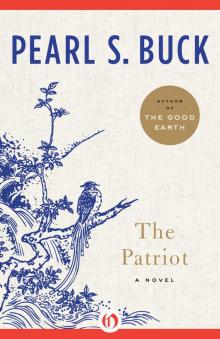 The Patriot
The Patriot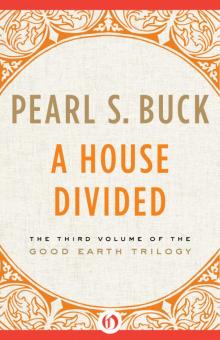 House Divided
House Divided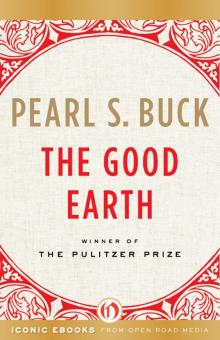 The Good Earth
The Good Earth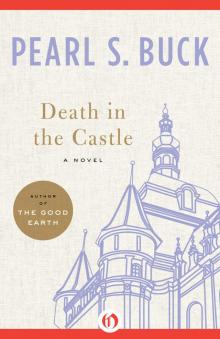 Death in the Castle
Death in the Castle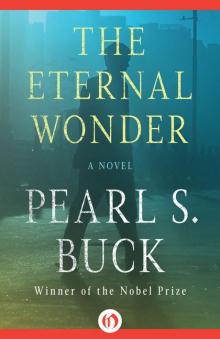 The Eternal Wonder
The Eternal Wonder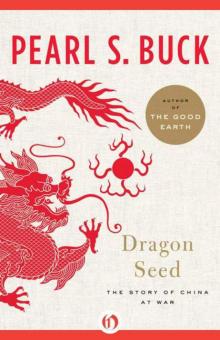 Dragon Seed: The Story of China at War
Dragon Seed: The Story of China at War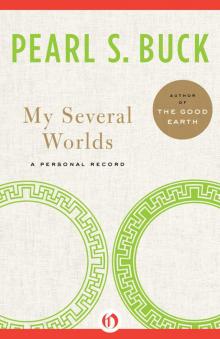 My Several Worlds: A Personal Record
My Several Worlds: A Personal Record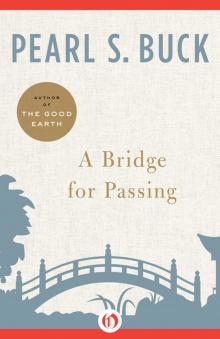 A Bridge for Passing: A Meditation on Love, Loss, and Faith
A Bridge for Passing: A Meditation on Love, Loss, and Faith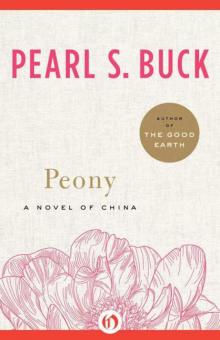 Peony
Peony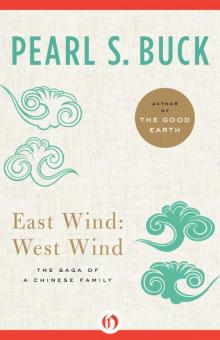 East Wind: West Wind: The Saga of a Chinese Family
East Wind: West Wind: The Saga of a Chinese Family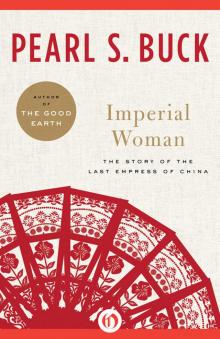 Imperial Woman
Imperial Woman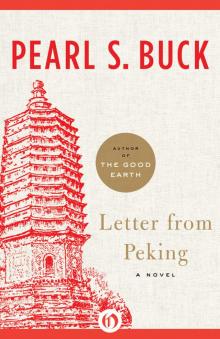 Letters From Peking
Letters From Peking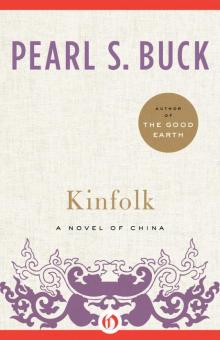 Kinfolk
Kinfolk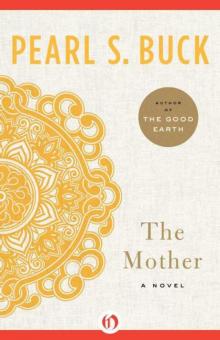 The Mother
The Mother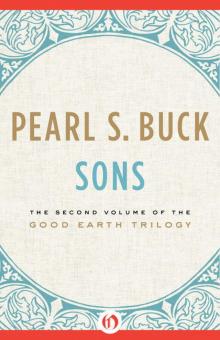 Sons
Sons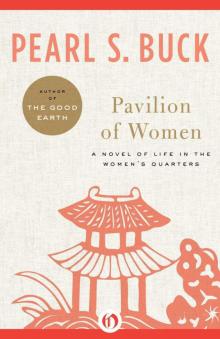 Pavilion of Women
Pavilion of Women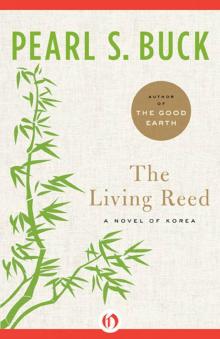 The Living Reed: A Novel of Korea
The Living Reed: A Novel of Korea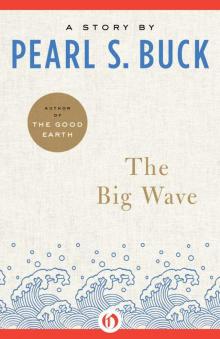 The Big Wave: A Novel
The Big Wave: A Novel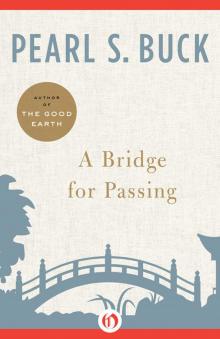 Bridge for Passing
Bridge for Passing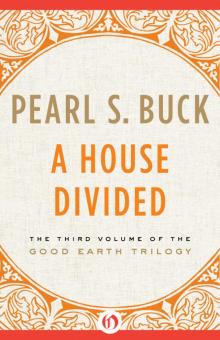 A House Divided
A House Divided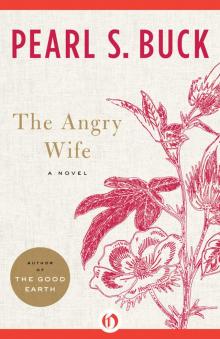 Angry Wife
Angry Wife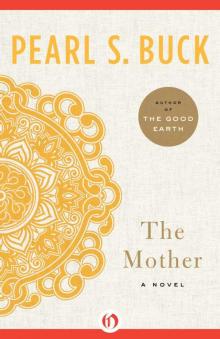 The Mother: A Novel
The Mother: A Novel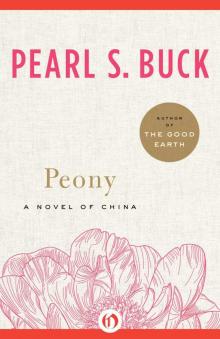 Peony: A Novel of China
Peony: A Novel of China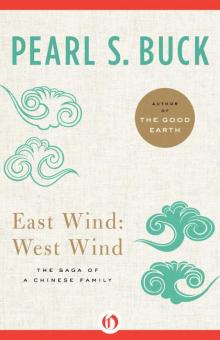 East Wind: West Wind
East Wind: West Wind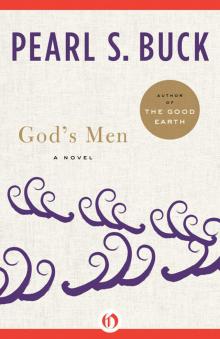 Gods Men
Gods Men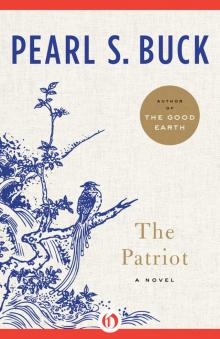 Patriot
Patriot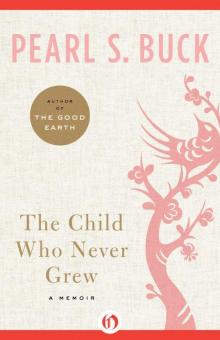 The Child Who Never Grew (nonfiction)
The Child Who Never Grew (nonfiction)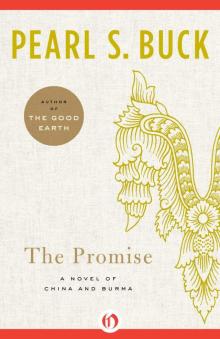 The Promise: A Novel of China and Burma (Oriental Novels of Pearl S. Buck)
The Promise: A Novel of China and Burma (Oriental Novels of Pearl S. Buck)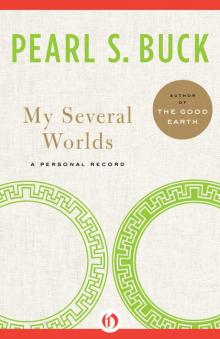 My Several Worlds
My Several Worlds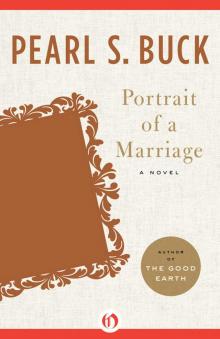 Portrait of a Marriage
Portrait of a Marriage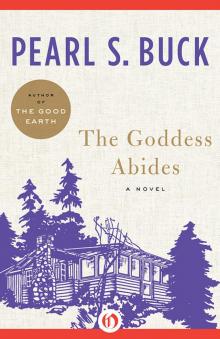 The Goddess Abides: A Novel
The Goddess Abides: A Novel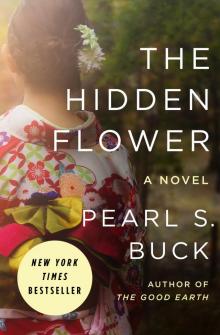 Hidden Flower
Hidden Flower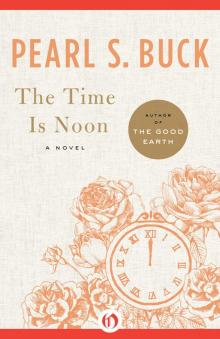 Time Is Noon
Time Is Noon